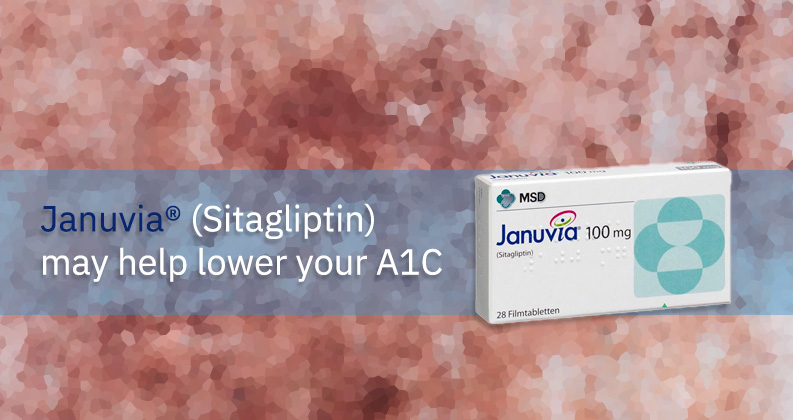
If you have type 2 diabetes, your doctor may recommend Januvia (Sitagliptin) to lower your blood sugar. Januvia is a prescription medication that helps regulate your blood sugar levels by increasing the amount of insulin produced in response to meals. It's part of a class of drugs called DPP-4 inhibitors and works by blocking the breakdown of a hormone called GLP-1 (glucagon-like peptide). This hormone tells your pancreas to release more insulin after meals
Januvia, also known as Sitagliptin, is a type 2 diabetes medication
Januvia, also known as Sitagliptin, is a type 2 diabetes medication. It's used to lower blood sugar in patients with type 2 diabetes mellitus. Januvia works by helping the pancreas work better at producing insulin (the hormone needed to help your body use sugar). One of the key functions of Januvia is its ability to block DPP-4 from working on its own so that it doesn't break down your insulin before it can do its job in moving glucose into cells for energy production. This allows your body to use more of the insulin that you make, which helps decrease blood sugar levels.
Januvia is a prescription medication. It's not intended for use in children under 18 years of age and should not be used by pregnant women.
Januvia is in the DPP-4 inhibitor class of diabetes medications
Januvia is a DPP-4 inhibitor. This is a class of diabetes medications that work by increasing insulin production, so they're often used to treat type 2 diabetes.
However, Januvia's specific mechanism of action is different from other DPP-4 inhibitors. It works by delaying the breakdown of proteins called incretins in your body. These proteins normally help with glucose absorption after meals and release insulin into your bloodstream for use by cells throughout the body. If you have type 2 diabetes (or even pre-diabetes), likely, these processes aren't working properly for you—and Januvia can potentially help restore them to normal function!
Is there a generic Januvia available?
No, Januvia is only available as a brand-name medication. It's not currently available in generic form. The patent for the active ingredient (sitagliptin) in Januvia is set to expire in 2022. It is reasonable to expect a generic version to be available within a few years of the patent expiration date. However, it may take longer depending on the intense competition between manufacturers and whether any legal challenges are made against the product.
A generic version of Januvia may become available in 2026.
Januvia has been shown to lower A1C levels by 1%-2%
The A1C test measures your average blood glucose level over the past 2-3 months.
Januvia has been shown to lower A1C levels by 1%-2%.
What is a good A1C level for a diabetic? Well, this depends on your age and whether or not you have complications from diabetes. For most people with type 2 diabetes, an A1C of less than 7 percent is considered a good target for maintaining healthy blood glucose levels.
However, talking to your doctor before taking Januvia or any other diabetes medication is important. Your doctor can help you manage your diabetes and find the right medication for your needs.
Ideally, Januvia is prescribed after other medicines have stopped being effective
Ideally, Januvia is prescribed after other medicines have stopped being effective. It may be used if you have a history of pancreatitis or if your doctor wants to use a different type of diabetes medicine than you're currently taking.
Because Januvia is not a first-line treatment for diabetes, your doctor may start you on another drug first and then switch you to Januvia if that doesn't work well enough. If the other drugs are working properly but have too many side effects, talk with your doctor about trying Januvia instead.
Januvia is not usually prescribed for people with a history of pancreatitis, as there's some evidence that Januvia may increase your risk of developing this condition if you already have it. Talk with your doctor about all possible risks before taking Januvia.
Januvia can be taken with or without food
Januvia is a diabetes medicine that can be taken with or without food. The combination of Januvia and food may lower your risk of having stomach problems, but it might also increase how much Januvia your body absorbs. You should take your dose simultaneously every day to help maintain stable blood sugar levels.
When taking Januvia, limit your consumption of grapefruit and grapefruit juice as they can make some medicines less effective. If you're taking other medicines along with Januvia, speak to your doctor or pharmacist before taking them together.
Januvia does not cause hypoglycemia (low blood sugar), but if you take Januvia with other diabetes medicines or insulin, your risk of hypoglycemia may increase. If you check your blood sugar at home and find that it is high for several days in a row, speak to your doctor about adjusting the dose of Januvia.
How long does it take for Januvia to start lowering blood sugar?
How long it takes for Januvia to start lowering blood sugar depends on several factors:
The dose. A higher dose may take longer to work.
Your body's response to the medicine. How quickly your body responds to Januvia can vary widely from person to person, so it's hard to say exactly how long it will take for you to experience results from this medication.
How high your blood sugar is when you start taking the medication? If your fasting glucose levels are high (over 250 mg/dl), Januvia will begin working more quickly than if they were lower at the same time point in your treatment regimen (e.g., after starting treatment).
Januvia usually starts working within several weeks, but it may take up to six months before you see the full effects of this medication.
Januvia should be taken along with diet and exercise
Januvia should be taken along with diet and exercise. A good diet while diabetic includes eating foods with low "glycemic index" scores, such as fruits and vegetables, and avoiding sugary foods or drinks like soda pop. Having a good exercise routine while diabetic can help improve blood circulation throughout the body; reduce stress levels; lower blood pressure; prevent heart disease and stroke risk factors such as high cholesterol levels or high triglyceride levels; improve quality of life; lose weight if needed (if overweight); reduce fatigue during daily activities such as work tasks, household chores or physical labor jobs outside the home environment--to name just a few benefits!
What are the common side effects of Januvia?
Side effects of Januvia may include sore throat, stuffy nose, headache, and upper respiratory tract infections.
Some people who take Januvia experience pancreatitis (inflammation of the pancreas). Tell your doctor immediately if you develop severe abdominal pain with nausea or vomiting after starting this drug.
Tell your doctor immediately if your blood glucose levels are not well controlled on Januvia.
Not everyone who uses Januvia will experience side effects. They may go away within a few days or weeks after you start taking them. If your symptoms do not improve or if they worsen, talk to your doctor.
What are the serious side effects of Januvia?
Some more serious side effects include pancreatitis (inflammation of the pancreas), which can cause severe abdominal pain that may be accompanied by nausea, vomiting, and increased levels of fat in your blood. If you experience any of these symptoms, contact your doctor immediately.
Pancreatitis is a serious condition that requires immediate treatment and should not be taken lightly. If left untreated, it can lead to death, so if you have these symptoms after taking Januvia, seek medical attention immediately!
Other serious side effects include an allergic reaction such as hives, difficulty breathing, swelling of your face or mouth, and skin rash. If you have any of these symptoms after taking Januvia, seek medical attention immediately.
Always talk to your doctor
If you are having trouble regulating your blood sugar, talk to your doctor about whether it makes sense for you to try this medication. If your A1C is above 10, ask your doctor if Januvia might be right for you. If it isn't at the moment, but might be in the future, don't give up hope! Talk with a medical professional about how often they prescribe Januvia and ask them when they think it could work well for you.
It's important that doctors know what their patients are doing so they can help keep them healthy and happy with their diabetes management. If, after taking this drug for a while there aren't any improvements in your A1C levels then talk with a medical professional about whether another treatment plan would work better (or just continue trying different things until something finally works).
Conclusion
We hope this article has helped you better understand Januvia and how it can help lower your A1C level. Discussing these options with your doctor before starting any new medication or changing your current treatment plan is important. If you decide to try Januvia or another DPP-4 inhibitor, stick with the prescribed dose and remember that diet and exercise are still key components of managing diabetes!







